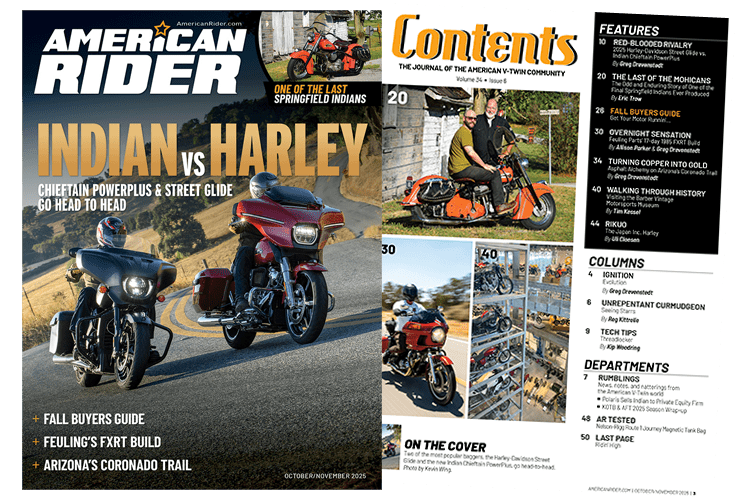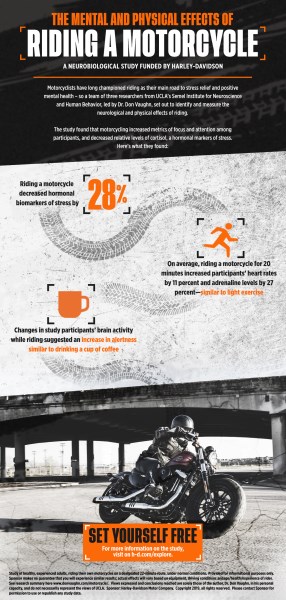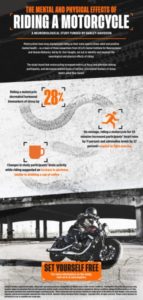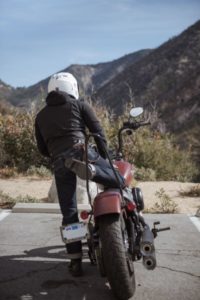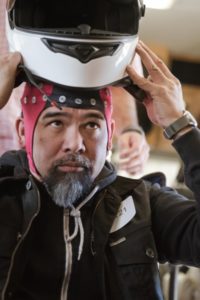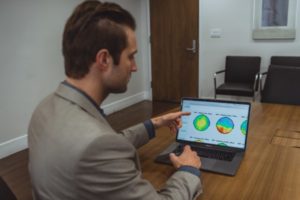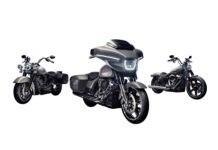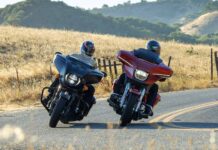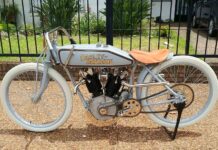Motorcycling decreased stress-measures, similar to light exercise
Milwaukee, Wis., Jan. 17—Motorcyclists have long championed riding as their main road to stress relief and positive mental health. Today, the results of a neurobiological study conducted by a team of three researchers from UCLA’s Semel Institute for Neuroscience and Human Behavior yielded pioneering scientific evidence revealing the potential mental and physical benefits of riding. Funded by Harley-Davidson, the study found that motorcycling increased metrics of focus and attention, and decreased relative levels of cortisol, a hormonal marker of stress.
Researchers recorded participants’ brain activity and hormone levels before, during, and after motorcycling, driving a car, and resting. While riding a motorcycle, participants experienced increased sensory focus and resilience to distraction. Riding also produced an increase in adrenaline levels and heart rate, as well as a decrease in cortisol metrics—results often associated with light exercise and stress-reduction.
“Stress levels, especially among young adults, continue to rise, and people are exploring pathways to better their mental and physical health. Until recently, the technology to rigorously measure the impact of activities like motorcycling on the brain didn’t exist,” said Dr. Don Vaughn, the neuroscientist who led the research team. “The brain is an amazingly complex organ and it’s fascinating to rigorously investigate the physical and mental effects riders report.”
Results Highlights:
- Riding a motorcycle decreased hormonal biomarkers of stress by 28%
- On average, riding a motorcycle for 20 minutes increased participants’ heart rates by 11 percent and adrenaline levels by 27 percent—similar to light exercise
- Sensory focus was enhanced while riding a motorcycle versus driving a car, an effect also observed in experienced meditators vs non-meditators
- Changes in study participants’ brain activity while riding suggested an increase in alertness similar to drinking a cup of coffee
“While scientists have long-studied the relationship of brain and hormone responses to attention and stress, doing so in real-life conditions such as these is rare,” explained UCLA Professor and senior team member, Dr. Mark Cohen. “No lab experiment can duplicate the feelings that a motorcyclist would have on the open road.”
“Te differences in participants’ neurological and physiological responses between riding and other measured activities were quite pronounced,” continued Dr. Vaughn. “This could be significant for mitigating everyday stresses.”
Research Overview
The research team monitored participants’ electrical brain activity and heart rate, as well as levels of adrenaline, noradrenaline, and cortisol. To be presented later this year, the Harley-Davidson funded study, entitled “The mental and physical effects of riding a motorcycle” measured the biological and physiological responses of more than 50 experienced motorcyclists, using mobile EEG technology.
“We’re leveraging the latest technologies as we shift our focus from exclusively motorcycles to growing ridership, so it only made sense to tap technology to explore the impact of riding itself,” said Heather Malenshek, Harley-Davidson’s Senior Vice President of Marketing & Brand. “The research findings Dr. Vaughn and his team identified helps explain what our riders have felt for the past 116 years—there’s a vitality and heightened sensory experience that comes from the freedom of riding a motorcycle. We hope their findings inspire the next generation of riders to experience these benefits along with us.”
The Ultimate New Year’s Resolution: Learning to Ride
For those who wish to experience the heightened sensory experience of riding first-hand, H-D Riding Academy will introduce you to motorcycle riding and build your skills in just a few days, regardless of experience level. Offered at select Harley-Davidson dealers, H-D Riding Academy provides expert guidance from Harley-Davidson certified coaches. In the classroom, you get to know basic motorcycle functions and learn the basics of rider safety skills. On the practice range, you build skills and confidence, learning everything from braking, turning and skilled maneuvers. Best of all, you will be connected to a growing community of new riders. To find available courses near you, contact your local dealer or search for classes at www.h-d.com.
Visit H-D.com/explore for more information.
Study Disclaimer
Study of healthy, experienced adults, riding their own motorcycles on a designated 22-minute route, under normal conditions. Provided for informational purposes only. Sponsor makes no guarantee that you will experience similar results; actual effects will vary based on equipment, driving conditions and age/health/experience of rider. See research summary here. Views expressed and conclusions reached are solely those of the author, Dr. Don Vaughn, in his personal capacity, and do not necessarily represent the views of UCLA.
—Press release

